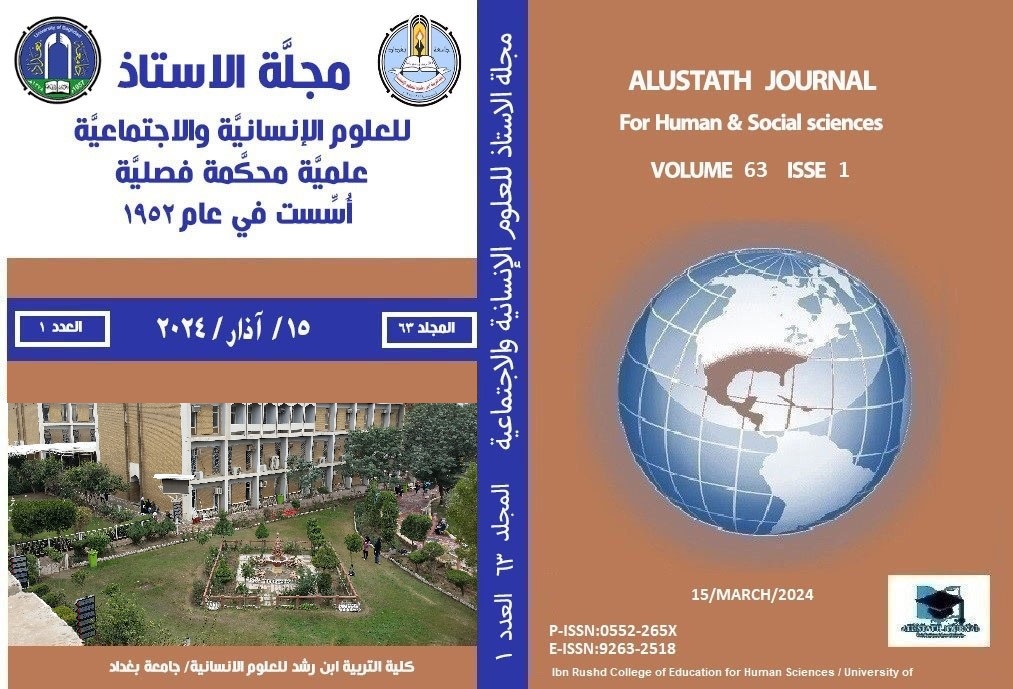A Pragmatic Study of Irony in TV Shows
DOI:
https://doi.org/10.36473/4j1cpb31Keywords:
pragmatic study. the irony . TV programsAbstract
The study of verbal irony is a complex form of communication that relies on a variety of contextual, implied, and intention-based aspects. The linguistic-based model provides a structured framework for dissecting the show's use of irony, allowing viewers to appreciate the nuanced interplay between language, context, and character dynamics that makes "Friends" a timeless and beloved sitcom. The study found that pragmatics and irony are interconnected through concepts like contextual interpretation, implicature, flouting maxims, tone and intonation, presuppositions, and politeness strategies. Understanding irony often relies on pragmatics because it involves context, implied meanings, and speaker intentions. The study concludes that "Friends" effectively uses verbal irony to enhance humor, deepen character dynamics, and convey underlying emotions. The linguistic-based model provides a structured framework for appreciating the show's use of irony.
Downloads
References
Asher, N., & Lascarides, A. (1998). The semantics and pragmatics of presupposition. Journal of semantics, 15(3), 239-300.
Austin, J. (1955/62). How to do things with words, 1955 William James Lectures, Harvard, published 1962. (Oxford: Clarendon Press)
Bach, K. (1994). Semantic slack: What is said and more. (In S. Tsohatzidis (Ed.), Foundations of speech act theory (pp. 267-291). London and New York: Routledge.)
Bach, K. (1997). The semantics/pragmatics distinction: What it is and why it matters. Linguistische Berichte, Sonderheft 8, 33-50
Blakemore, D. (1987). Semantic constraints on relevance. (Oxford: Blackwell)
Blakemore, D. (2002). Relevance and linguistic meaning: The semantics and pragmatics of discourse markers. (Cambridge: Cambridge University Press)
Cappelen, H. & Lepore, E. (2007). Relevance theory and shared content. (In N. Burton-Roberts (Ed.), Advances in pragmatics. Basingstoke: Palgrave Macmillan.) Cappelen, H. & Lepore, E. (forthcoming). The myth of unarticulated constituents. (In
Carston, R. 2004. Relevance theory and the saying/implicating distinction. (In L. Horn & G. Ward (Eds.), The handbook of pragmatics (pp. 633-656). Oxford: Blackwell.)
Colston, H. L., & O'Brien, J. (2000). Contrast of kind versus contrast of magnitude: The pragmatic accomplishments of irony and hyperbole. Discourse processes, 30(2), 179-199.
Garmendia, J. (2018). Irony. Cambridge University Press.
G. Peter (Eds.), Content and context: Essays on semantics and pragmatics. Oxford: Oxford University Press.)
Grice, H. P. (1989). Studies in the way of words. (Cambridge, Mass.: Harvard University Press)
Grice, H. P. (1975). Logic and conversation. In Speech acts (pp. 41-58). Brill.
Hyland, K. (1998). Persuasion and context: The pragmatics of academic metadiscourse. Journal of pragmatics, 30(4), 437-455.
Iten, C. (2005). Linguistic meaning, truth conditions and relevance: The case of concessives. (Basingstoke: Palgrave Macmillan)
Levinson, S. (2000). Presumptive meanings: The theory of generalized conversational implicature. (Cambridge, Mass.: MIT Press)
MacFarlane, J. (2005). Making sense of relative truth. Proceedings of the Aristotelian Society, 105, 321-339.
Neale, S. (2003). What do we want? Ms (Chapter of Neale, S. forthcoming. Linguistic Pragmatism.)
Searle, John R. Speech acts: An essay in the philosophy of language. Vol. 626. Cambridge university press, 1969.
Wharton, T. (2003). Natural pragmatics and natural codes. Mind & Language, 18, 447-477
Wilson, D. & Sperber, D. (2004). Relevance theory. (In L. Horn & G. Ward (Eds.), The handbook of pragmatics (pp. 607-632). Oxford: Blackwell.)
Searle, J. R., Kiefer, F., & Bierwisch, M. (Eds.). (1980). Speech act theory and pragmatics (Vol. 10). Dordrecht: D. Reidel.
Thomas, J. (1997). Conversational maxims. Concise encyclopedia of philosophy of language, 517-518.
Wierzbicka, A. (2003). Cross-cultural pragmatics: The semantics of human interaction. Mouton de Gruyter.
Wilson, D. (2006). The pragmatics of verbal irony: Echo or pretence?. Lingua, 116(10), 1722-1743.
Downloads
Published
Issue
Section
License
Copyright (c) 2024 Abdulkarim F. Jameel2024

This work is licensed under a Creative Commons Attribution 4.0 International License.











